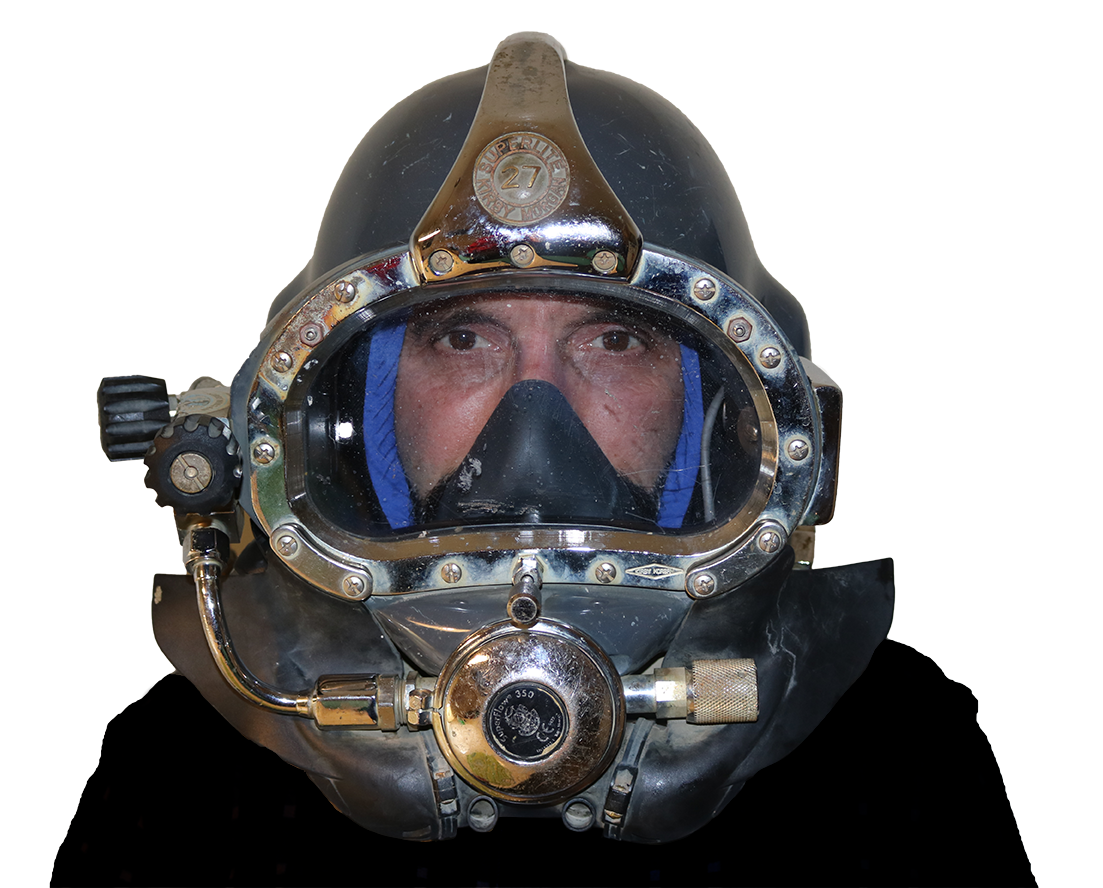
By Michael Turton
Jay Rutkowski of Cold Spring has been a commercial diver for 30 years.
What does a commercial diver do?
Diving is the transportation that gets you to a project, but it’s what you know once you’re down there that counts. Most jobs are construction, and any related skills you have will make you a better diver: welding, cutting metal, rigging, putting pipes together, carpentry, plumbing and common sense. In the New York City area, most work is rehabilitating piers. It’s hard, dirty work. There are two assignments I won’t take: diving in the crystal-clear water inside the Indian Point nuclear plant where the radioactive rods are kept, and diving in a sewage treatment plant. I did that — once.
What kind of critters do you see?
I’ve had things bump me in the dark. In the Gulf of Mexico, giant schools of fish will swim right through you. On deep dives you have to decompress when coming up by sitting in a basket at 30 to 50 feet down, and barracudas will swim around you. You keep an eye on them! As a joke, the cook would throw meat scraps over the side of the barge. The fish go crazy. It keeps the diver on his toes.
Have you found yourself in dangerous situations?
I pinched my dive hose on a job in Lake Ontario; I had no air. I was only at 15 feet, but that’s deep enough. In the Hudson River we were exposing a damaged power cable buried in the river bed. Using a high-pressure hose, we dug a 15-foot-deep trench. It caved in on me, but I was able to get out. Getting caught in the Hudson current and tides is bad. If it gets up to 2 knots, you’re not going to be able to get up to the surface.
What work did you do in the Gulf of Mexico?
We removed oil platforms blown over by Hurricane Katrina and “killed” the leaking wells by pumping them full of concrete. It was a saturation dive, meaning my dive partner and I lived inside a small chamber on the deck of the barge for 30 days that was kept at the same pressure as an 180-foot dive. That allowed us to do 12-hour shifts. Otherwise you might only be able to work for 45 minutes before coming up to decompress. You dive in a small pressurized bell. I’d work five-and-a-half hours with my partner waiting inside the bell, keeping an eye on my lines, then we’d switch. You wait, wait and wait. When you go back up [to the surface], they reattach the bell to the living chamber. It’s like the lunar module hooking up to the space station. Too much oxygen is toxic at deep depths. We breathe a mixture with less oxygen that includes helium. So, for 30 days you talk like Donald Duck! And nothing tastes right. Even flushing the toilet is a process.
Do you dive in the dark and in bad weather?
We work day or night, 24 hours a day. Usually it’s pitch-black down below. We have lights, but if the water is like chocolate milk you just make it work. I like to say I’m an expert with my hands in the dark! You never know what the weather is when you’re on a dive. Recently, I was working on a Hudson River pier in the city. My tender came on the radio and said, “Jay! We’re bringing you up! We’re bringing you up!” I asked what was wrong. He said it was raining and the barge crew was packing it in. That was pretty funny.
